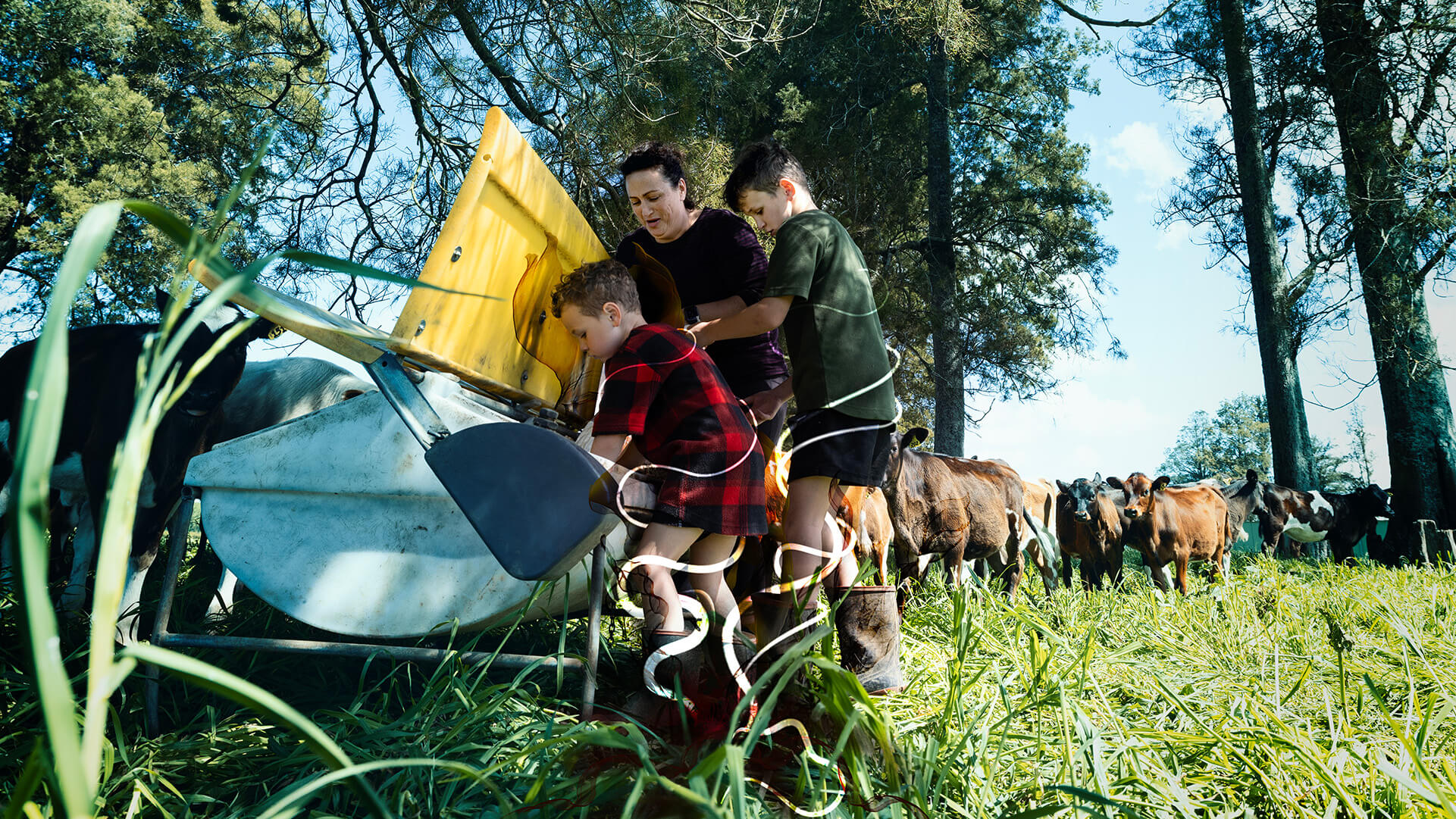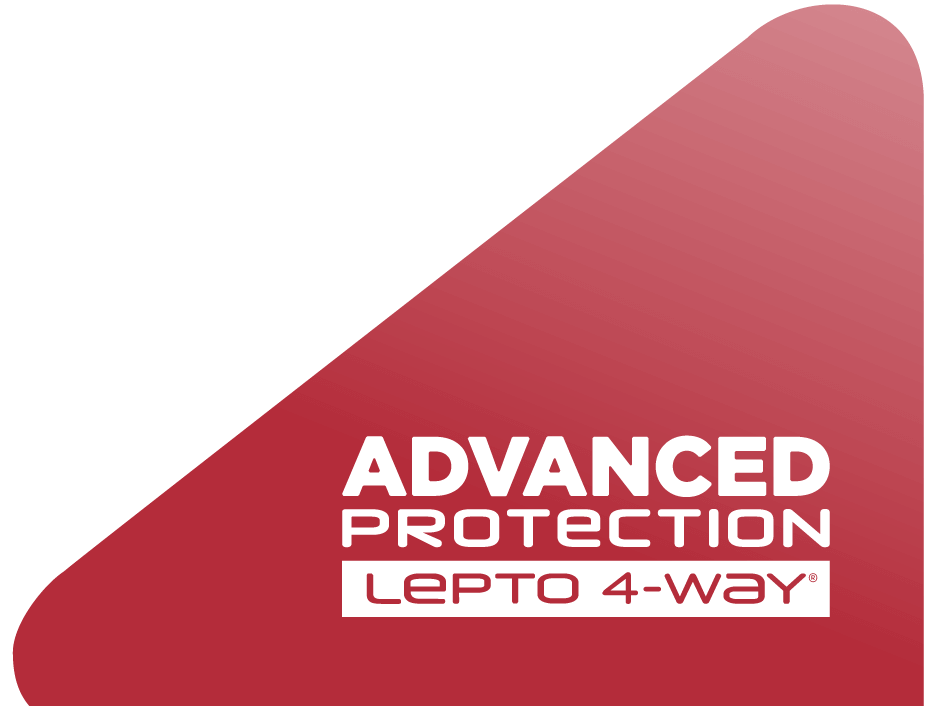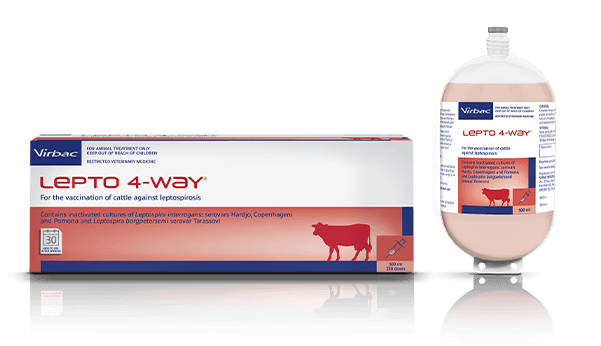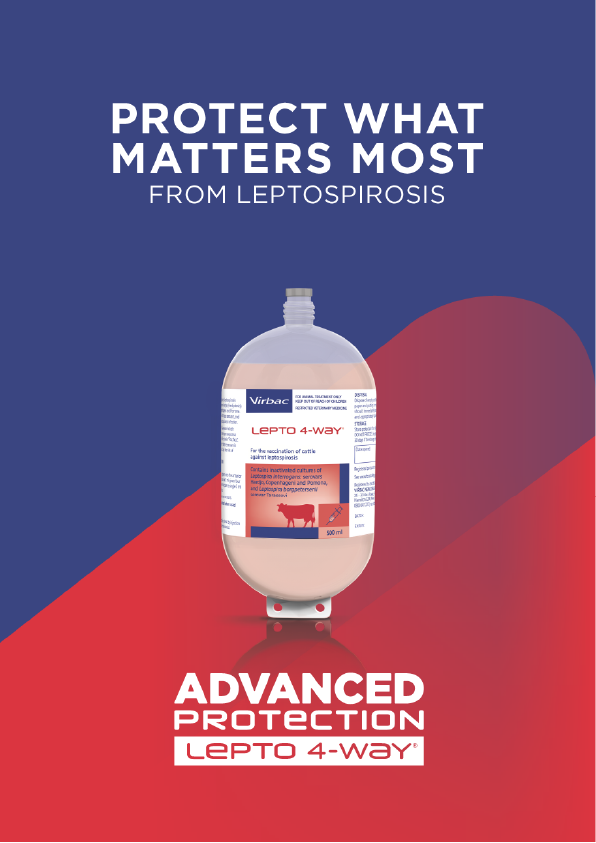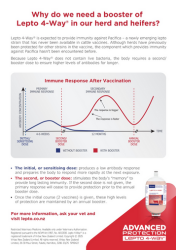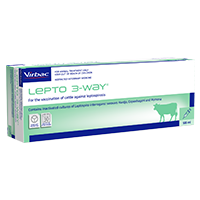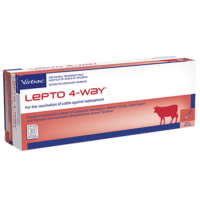Why should I use Lepto 4-Way®?
Lepto 4-Way® is the only registered vaccine for cattle that could provide immunity against the emerging lepto strain, Pacifica. Together with the other serovars of lepto currently included in vaccines, Lepto 4-Way® offers the most advanced protection available. A robust vaccination programme, along with other preventative measures like rodent control and health and safety precautions is the best way to prevent disease on your farm.
Can I test my herd to see if they have been exposed to lepto?
While testing is available to see if your herd has been exposed to many of the prevalent lepto serovars, a recent study showed that approximately three quarters of herds have been exposed to Pacifica nationwide.3 With prevalence this high and the ability of lepto to spread, the best plan of action is prevention, even if your herd is yet to be exposed.
What other lepto strains does Lepto 4-Way® protect my stock against?
As well as providing expected immunity against the emergence of Pacifica, the Lepto 4-Way® vaccine also contains Hardjo, Copenhageni and Pomona - serovars that have been identified to cause disease in livestock and humans in New Zealand.
How do I best protect my herd from lepto?
The best way to protect your herd and family is to use Lepto 4-Way® in conjunction with other robust preventative measures. Rodent control, ensuring any new stock entering the farm is vaccinated and staff and visitor health & safety training are among some of the ways this is achieved.
Why do I need to boost my herd/heifers with Lepto 4-Way®?
Lepto 4-Way® is expected to provide immunity against Pacifica - a newly emerging lepto strain that has never been available in cattle vaccines. Although New Zealand herds have previously been protected for other strains in the vaccine, the component which provides immunity against Pacifica hasn't been encountered before. Because Lepto 4-Way® does not contain live bacteria, the body requires a second/booster dose to ensure higher levels of antibodies for longer. For more information on this, check out the Booster Vaccination Flyer in the downloads below.

